It has been very easy to convince people of the many benefits that driving electric cars brings to the city. They cut out low-speed gas guzzling, remove tons of emissions that dirty the air, reduce the overall traffic noise, and many are even equipped with additional tools like one-pedal driving with automatic and regenerative braking that makes life much easier when you’re driving in traffic.
These are benefits to the city, but what about highway driving? Do the fantastic features of the urban electric vehicle translate well into the sphere of high-speed highway cruising? These core questions and others are ones we will be discussing in today’s blog.
Electric Vehicles and Highway Driving – What are the Challenges?

When it comes to highway driving and electric cars, there are a number of things that people are concerned about:
1. Range Anxiety
This has to come first in our list because it’s arguably the biggest stumbling block (along with the current high prices of EVs) that prevent people from making the switch from gasoline to electric. Range anxiety refers to the fear people have that their electric car will run out of juice a long way from any charging stations and leave the driver stranded. The common nature of gas stations and the fact most gasoline sedans get 300+ miles on a single tank make that fear less pronounced in internal combustion cars.
The average range of electric cars has been improving, but still has some way to go to allay range anxiety. There are cars like the Mini Electric that only offer 110 miles of range, but also models like the Tesla Model S have a range up to 353 miles on its Performance version. In the middle there are many other models offering ranges from 150 to 300 miles. That means most are still behind the average sedan car.
Therefore, for EVs on the highway, range anxiety is a big problem. When people drive their electric car around the city, this fear isn’t so strong because the slower the car is going, the less battery is used, and as things currently stand, most of the charging infrastructure that we have is concentrated in and around the cities.
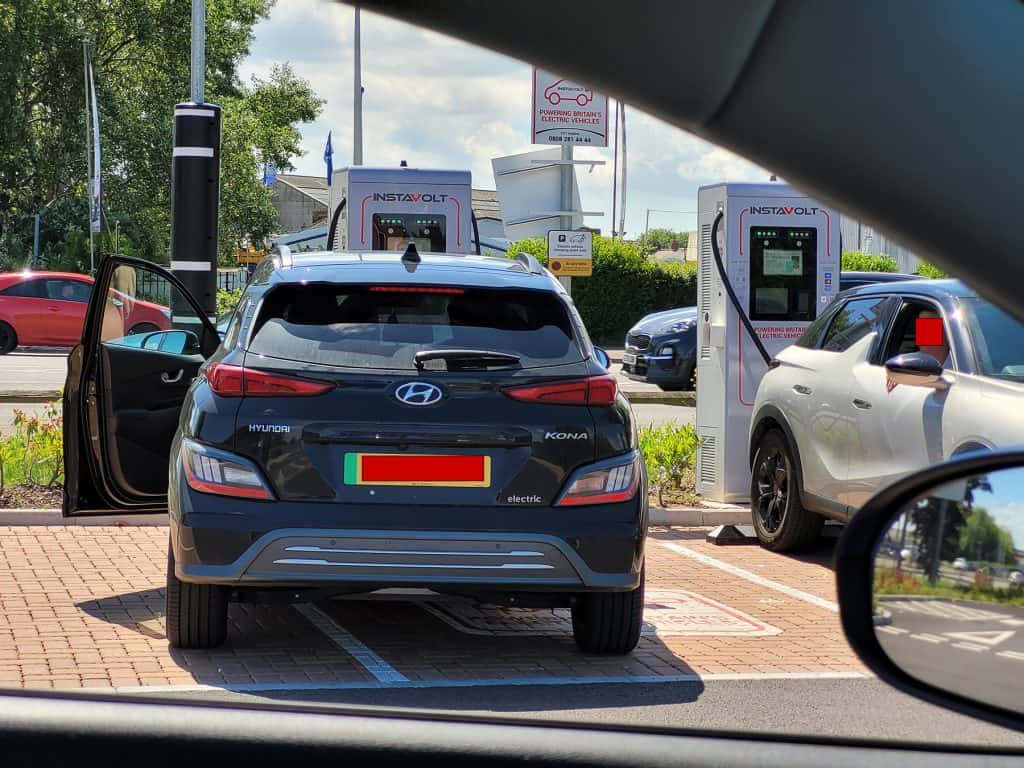
When you go out onto the highway, however, it’s a different question. Major routes tend to have good numbers of charging stations. Interstate 5, Highway 99, for example, connects California, Oregon, Washington, and British Columbia in Canada and features DC fast charging stations about every 25 to 50 miles along the road. A similar concentration will need to be reached around the country before range anxiety really subsides.
2. Acceleration
Another question people have is about acceleration. Can EVs accelerate fast enough to pass other cars on the highway? Can they move from slower speeds entering the highway to the higher cruising speeds quickly? The answer to both of these questions is yes, they can. Acceleration isn’t a problem for the majority of electric cars because they are essentially 4-wheeled mega-torque machines. The same can’t always be said for their top speed, though.
3. EV Top Speeds
When you dive into the specifications of many available electric vehicles, you discover that unless you happen to like and want the Tesla Model 3, there are very few EVs out there with a top speed to match that of any gasoline or diesel vehicle. That raises some difficult questions for the real viability of EVs on the highway.
Many EVs have their top speeds limited in order to preserve battery life. Therefore, those driving long distances on the highway have a choice. They can maintain fair cruising speeds to keep their range, or go to the top speeds and lose battery power (and therefore range).
4. Safety
One more issue that arises for EVs on the highway comes with the safety features touted by many EV brands, but especially Tesla. For example, the use of autonomous driving features has raised questions about the overall safety of EVs on the highway. With some EV users misusing such features, it raises the question of whether or not having these features makes the car more or less suitable and safe for highway driving.
Below we’ll share some of our recommendations on the best electric cars for highway driving. The cars below are ones that either solve problems mentioned above or combine qualities of range, reliability, speed and acceleration and strong safety features. We also mention their particular drawbacks.
Best 8 Electric Cars for Highway Driving
1. Tesla Model S
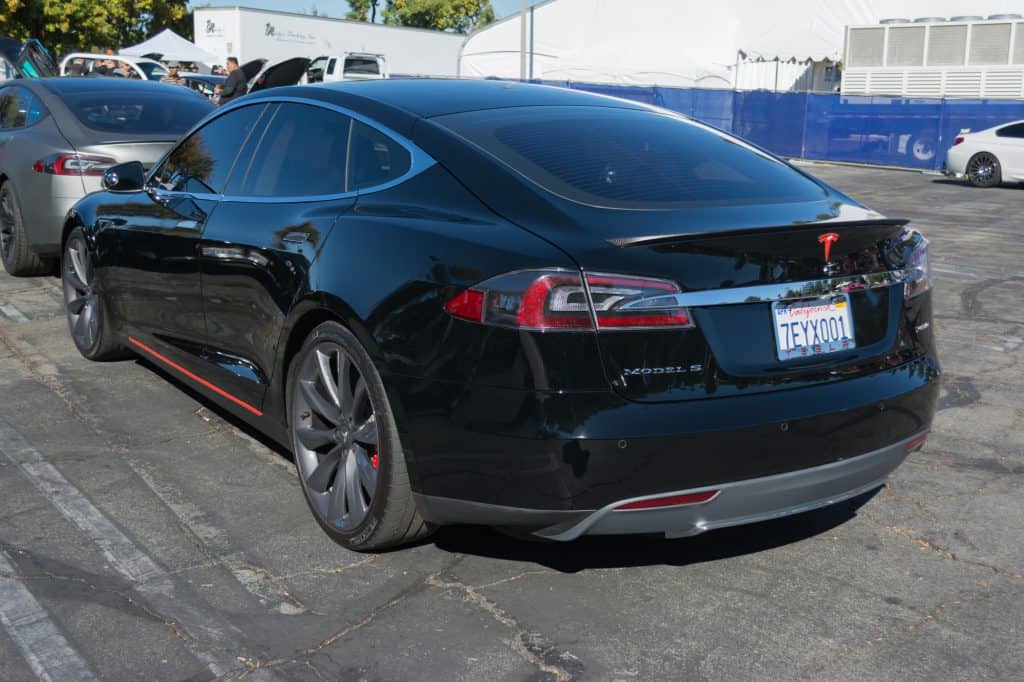
Like many models in the Tesla range, the Model S is built for speed and distance. Tesla is very quick to point out the class-beating range on their models, which invariably outstrip anything other EV makers can offer. Of course, you do pay a premium for that kind of range.
The Model S gets up to 396 miles of range in its current form, and boasts acceleration from 0-60 of just 1.99 seconds. It has a top speed of 200mph and a peak horsepower rating of 1,020-hp, making it not just efficient, but incredibly powerful and more than capable of keeping up — even surpassing — your typical highway-bound sedan car.
Drawback: The main problem with the Model S is cost. It’s not a car that the average Joe can afford. The base model starts at $82,990 in the current model year, and that’s including savings and incentives. The super-fast tri-motor Plaid model starts at $122,990.
2. Tesla Model 3
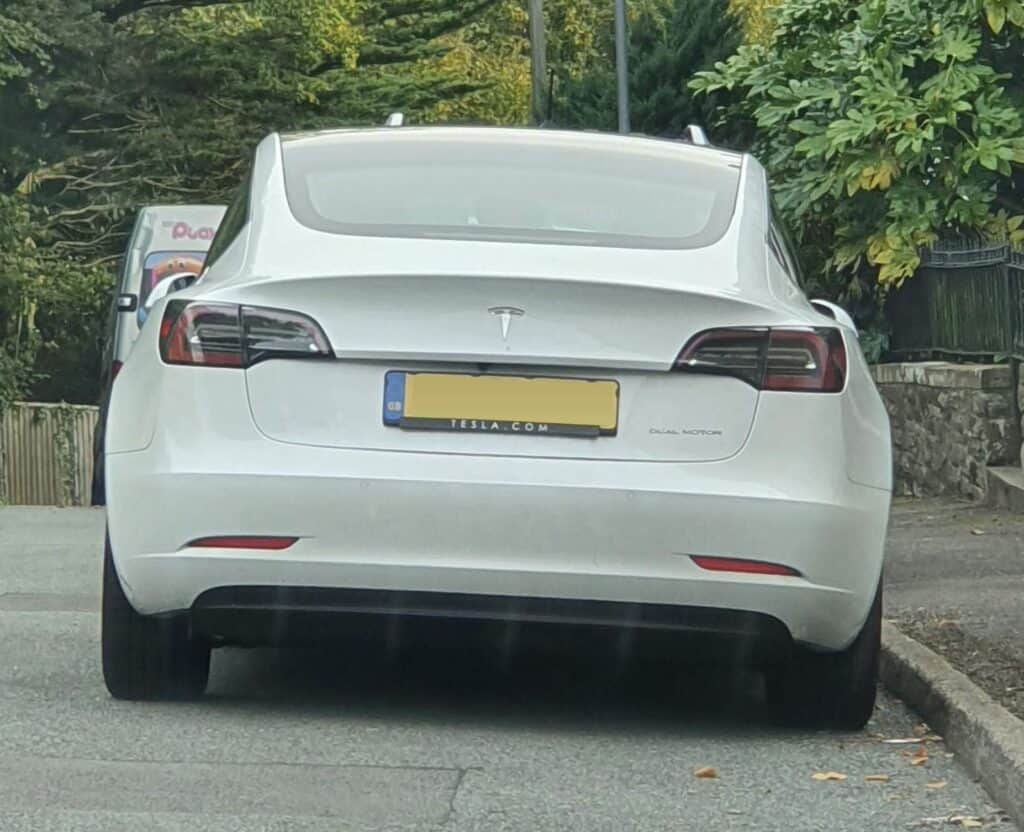
The Model 3 is certainly more affordable than the Model S, and still boasts impressive numbers that make it a very good highway model. It’s maximum range of 353 miles, AWD drivetrain and 0-60 time of 3.1 seconds put it on par with a decent gasoline sedan in terms of range, but also with a top-end sports car in terms of acceleration. It also has a top speed of 162mph.
You also get a good amount of cutting-edge technology as standard in the Model 3, as with other Tesla models, which makes long trips on the highway all the easier, safer and more enjoyable.
Drawback: With the Model 3, you get a more affordable Tesla choice, but you lose some of the refinement that comes with higher Tesla models. What’s more, you have to spend an additional $10,000 to get all the driving technology extras to get the most out of your Model 3 on the highway.
3. Polestar 2
The Polestar 2 offers a very pleasing and highway-friendly range of 292 miles, and with a starting price of $45,900, it’s not the most expensive high-end style EV crossover out there. In fact, it’s relatively cheap! It arrived on the scene in August 2020 as a rival to Tesla’s Model 3, and with its range it is well-suited to any kind of high-way travel, getting about the same mileage as a good sedan, or slightly under.
The Polestar 2 really looks the part, combining sedan and sportback/hatchback looks with comfortable interiors and a good array of features for highway journeys.
Drawback: One small issue with the Polestar 2 is the top speed of just 127mph. It’s by no means the worst in the EV world, but for a so-called Model 3 rival, shedding 40mph from the top speed is quite a big deal, and means that travelling at typical highway speeds will drain the battery more than the Model 3.
4. Jaguar I-Pace
The I-Pace has been a surprising success for Jaguar, offering great looks and luxury outlay with a very pleasing highway-friendly range of up to 292 miles. Even if that comes down to 255 miles or so with speed factored in, it’s still more than enough for any typical highway driver. You can also rapid charge the vehicle in well under an hour, making it even more ideal for highway use.
Drawback: Similar to the Polestar 2, the Jaguar I-Pace somewhat disappoints with its best top speed rating of just 124mph. Its gasoline counterpart, the F-Pace gets up to 136mph. It’s still not the worst, and it is at least comfortably over 100mph, but you pay $69,500 as a starting price to get a car that underperforms overall when compared to the Model 3.
5. Chevrolet Bolt
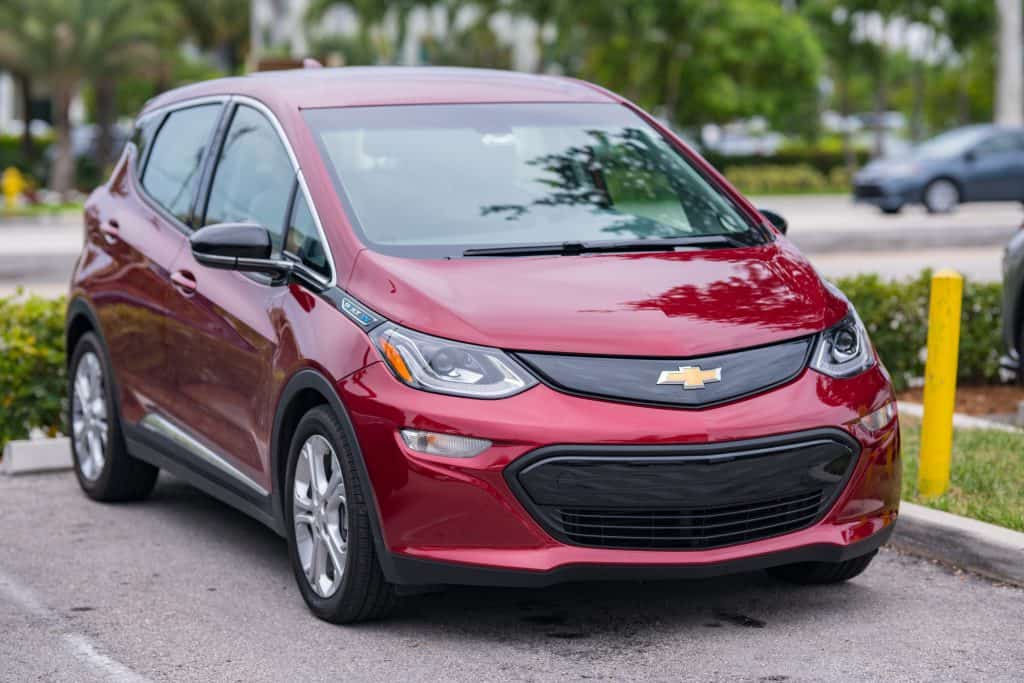
The Chevy Bolt is a great and relatively affordable EV at just $31,995. It’s a comfortable 5-seater with a very decent range of up to 259 miles as estimated by the EPA. For an affordable model, you get lots of good tech included, as well, including Wi-Fi, Apple CarPlay, forward collision warning, remote engine start and more.
The range and comfort make it a great choice for families who need highway travel in their regular car use. Its crossover design has proven popular with many buyers who have helped make it one of the most popular electric vehicles in the US.
Drawback: The Bolt is not the most dynamic or exciting car to drive, and isn’t resplendent with luxury features. There’s also no AWD option, but that’s not necessarily a problem for highway travel. Its top speed of 93mph is somewhat problematic on the highway, though, because it means you have to cruise slower to maintain proper battery usage.
6. Nissan Leaf
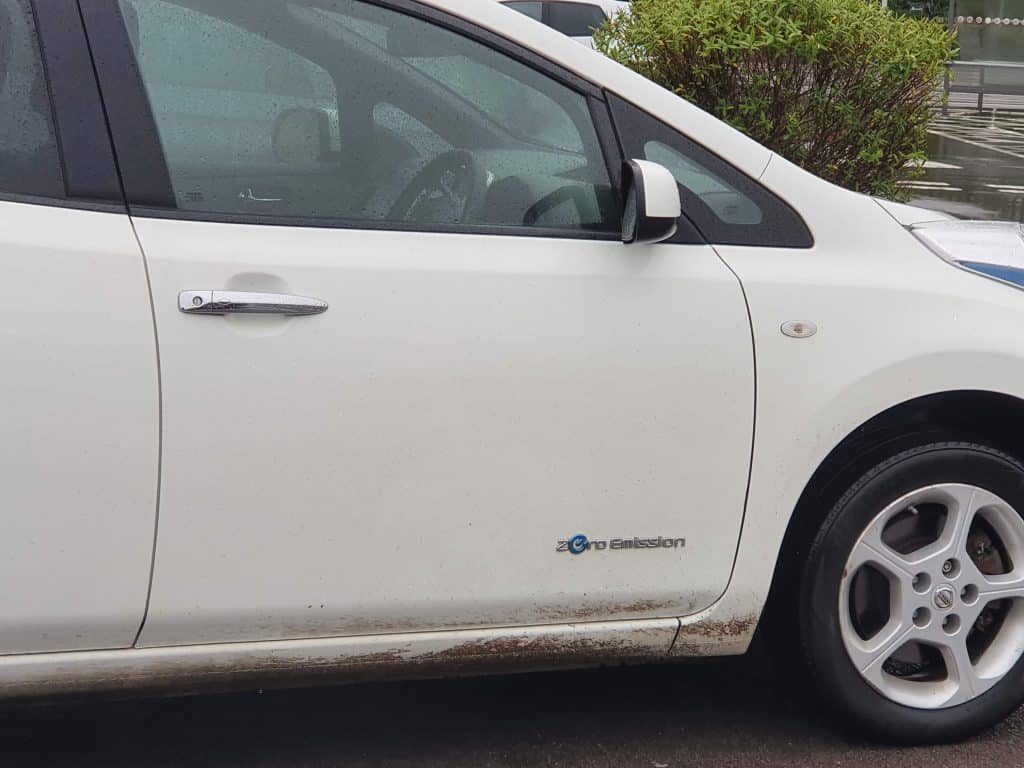
Nissan was the company that introduced the world to the concept of one-pedal driving through their e-Pedal technology. This made the early Leaf models very popular for city drivers, but with early models only getting 100 miles of range, they weren’t good for the highway, until 2018. That’s when things really changed and the range was boosted up and now it offers up to 226 miles, making it more accessible to highway users.
Drawback: The Nissan Leaf only gets up to 89.5mph max speeds, making it even slower than the Bolt. For shorter highway journeys, and commutes involving highways, the Leaf remains a good choice, but it’s a little limited by this top speed for longer journeys like summer road trips. Consistently traveling at speeds of 70mph+ would be very draining on the Nissan Leaf.
7. Hyundai Ioniq Electric
Korean auto giant Hyundai is becoming a big and important player in the EV market. Their Ioniq Electric is a great choice for the highway, offering 170 miles of range currently, and with a starting MSRP of just $34,250. The range isn’t as long as some competitors, but its improved top speed of 103mph means that it’s better equipped to handle highway speeds than competitors like the Nissan Leaf.
Drawback: You have to spend more money on the Ioniq Electric for less range than a Leaf. The speed helps make it more highway-friendly, but the cost seems off when you look at range, which for many is a more important factor.
8. Chevrolet Bolt EUV
The newest member of the Bolt family set for release in the 2022 model year is a compact crossover that will give 250 miles of range, and a price point of just $33,000, which is very good for its category. The EUV will also include Chevy’s Super Cruise hands-free semi autonomous driving system, which adds some technological capability to this car that is currently only seriously offered by Tesla.
Drawback: The EUV hasn’t received improved performance credentials, offering just 0-60 in 7.0 seconds and a top speed of just 90mph. That’s not a fantastic deal for EVs, and reduces its total capacity on the highway.
Conclusion: Considering Your Needs is Essential
When it comes to choosing an EV, you have to think about your needs a lot more carefully than you might do with a regular gasoline car. With a gasoline car, the miles-per-gallon rating and top speed are about the only things people care about when it comes to highway driving, since in most other respects the cars are pretty similar.
EVs, on the other hand, currently have a greatly varying range of capabilities, which need to be factored into your decision most carefully. With gasoline, a small hatchback or giant pickup truck are both considered fine for the highway. If your EV only does 100 miles on a single charge, however, then high-speed interstate highways are not necessarily a good choice. Do you need an EV for basic commuting? Daily errands? Long-distance travel like sales calls or family vacations? Just for getting about in the city? All of these things matter more when it comes to electric vehicles.